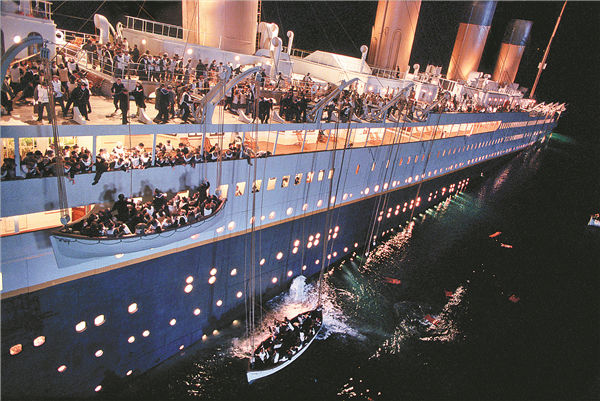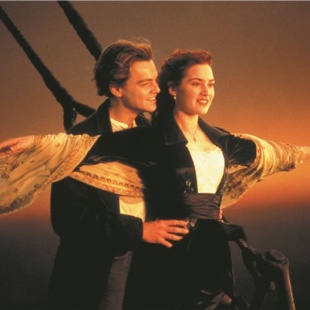Titanic sails again 25 years later


"I think it's as relevant today as it was then, maybe even more so because implicit in the film is a warning that we're kind of too arrogant about the problems of the world, like climate change and other things that are coming toward us like that iceberg," he explains.
Budget overruns and filming delays are common experiences for many blockbuster films, but Titanic faced a bigger challenge. Initially budgeted at $110 million for 138 shooting days, the film's final cost exceeded $200 million, and production work lasted 160 days.
When asked how he handles pressure, Cameron says: "I always joke and say, I eat stress for breakfast."
Explaining that he uses several stress management techniques, such as kickboxing three times a week, and spends an hour watching TV every night, ideally something not related to his current project, Cameron says these help him to clear his mind and sleep without worrying about problems.
"Whatever I'm doing during the day, I say that's a problem for tomorrow. Solve it tomorrow, but not right now," the director adds.
In the past two decades, China's film industry has seen an unprecedented expansion, constructing a total of over 80,000 screens in more than 10,000 cinemas. Speaking about the change, Cameron — who has visited China several times — says he loves the fact that Chinese audiences can enjoy the visual effects-studded epic in a better presentation.
"I admire Chinese filmmakers. I think that they're absolutely as good as anybody coming out of Hollywood. I think they've built an industry with a combination of creating titles that are of interest to a global audience.
"They're also building up a base of internal consumption and putting theaters all across the country, even in small towns where they never even had a movie theater before," he says.




































